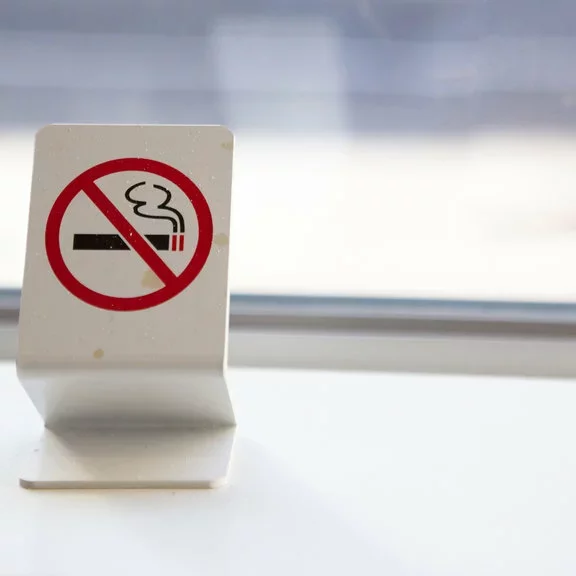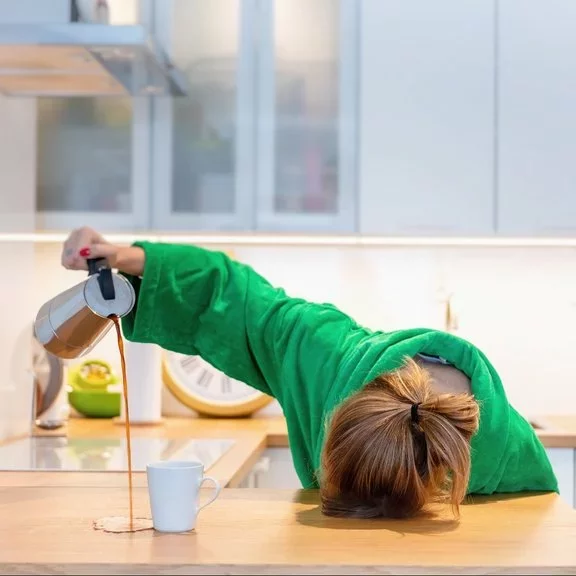Staying Healthy with Positive Lifestyle Changes
Adopting a healthy lifestyle plays a significant part in your treatment for sleep apnea. Small changes can make a big difference and will allow you to enjoy your life to the fullest.
Smoking, obesity, alcohol, certain medications, and poor sleep hygiene all have a detrimental effect on your health and all contribute to the symptoms of sleep apnea. Making moderate changes to what you eat and drink – and by becoming more physically active– you can make a positive change to your overall health and well-being(1-9). These improvements will also boost the efficacy of your CPAP therapy.
Start by making a few simple changes in your everyday life.
- Eat three balanced meals a day at regular times, sit at a table in a quiet place, and avoid big meals before going to sleep.
- Drink 1.5 to 2 liters of water per day (10) and limit your consumption of alcohol and caffeine-based drinks, such as coffee and energy drinks, especially at the end of the day. (3,4)
- Exercise for at least 20-30 minutes regularly. This could be a simple walk after dinner or to start your day. (11)
- Try to quit or reduce smoking. (6,12)
- Adopt good sleep hygiene, put away electronics, purchase dark-out blinds and find ways to relax before trying to fall asleep.
Easy to say… Let’s share some tips to support you in adopting these lifestyle changes:
The easiest way to make change is to come up with a plan (and stick to it!).
- Prepare a shopping list before you visit the supermarket. Swap out processed foods, refined sugars, and frozen meals for fresh items.
- Change up your cooking at home so you eat a variety of foods, and use seasonal fruit and vegetables. You can find almost any recipe online.
- Prepare several meals (batch cook) in advance to save yourself cooking time when you can’t face being in the kitchen.
- It’s not easy but small changes to your diet and lifestyle will support a positive mood and improved sleep quality.
Exercise can improve your quality of life by controlling your weight, boosting your mood, decreasing daytime drowsiness, and promoting a better night’s sleep.
Adding exercise to your daily routine can be simple, here are a few simple ways to get started:
- Take a short 20 min walk during your lunch break or after dinner.
- Try a 10-minute workout.
- Take a phone call outside, or find a friend to chat with as you go for a stroll.
- Take the stairs whenever possible.
Combining regular exercise with a healthy diet will help improve your quality of life. Before starting a new exercise or weight-management program you should speak with your healthcare professional.
To stop smoking, try to:
- Identify the moments you associate with smoking, and then change that ritual. For example, drink tea instead of coffee, and take a 5-minute walk rather than a coffee break.
- Put aside the money you save from not smoking and treat yourself to something.
- Download an app to help you stop smoking.
- Seek professional help if necessary – you’re four times more likely to quit when you have expert help. (12,13)
‘Sleep hygiene’ simply means habits that foster getting a night of good sleep. Good sleep hygiene includes:
- Daily routines, such as getting enough exercise and sunlight.
- What you do (and what you avoid) before bedtime.
- Creating a bedroom environment that’s conducive to relaxation.
Everyone, including children, need enough sleep to function at their best, and sleep hygiene can play a crucial role in achieving that goal.
CPAP therapy: A Life Changing Treatment
Benefits of CPAP Therapy
Treating sleep apnea with CPAP therapy makes seeking a better life easier and more enjoyable for the people around you.
Our commitment to you
Our team of sleep health professionals are here for you every step along the way.



